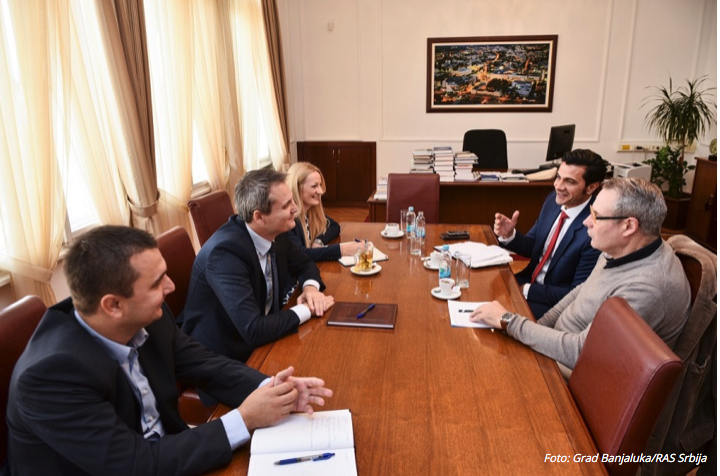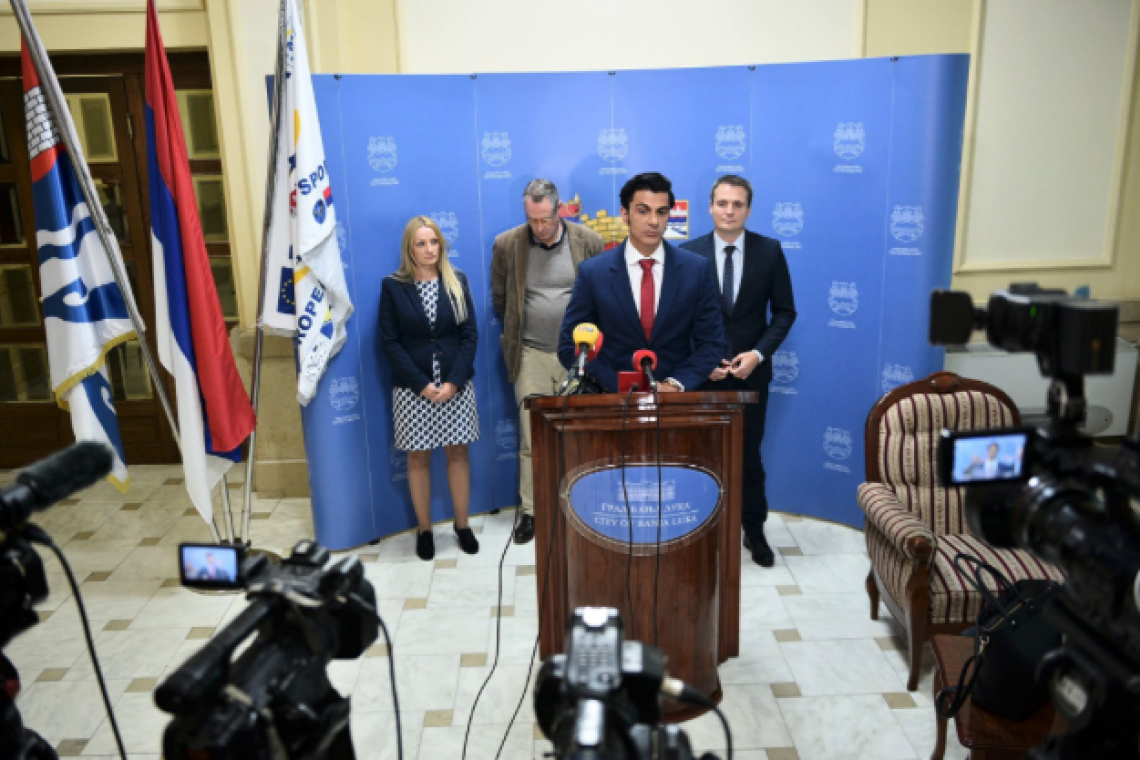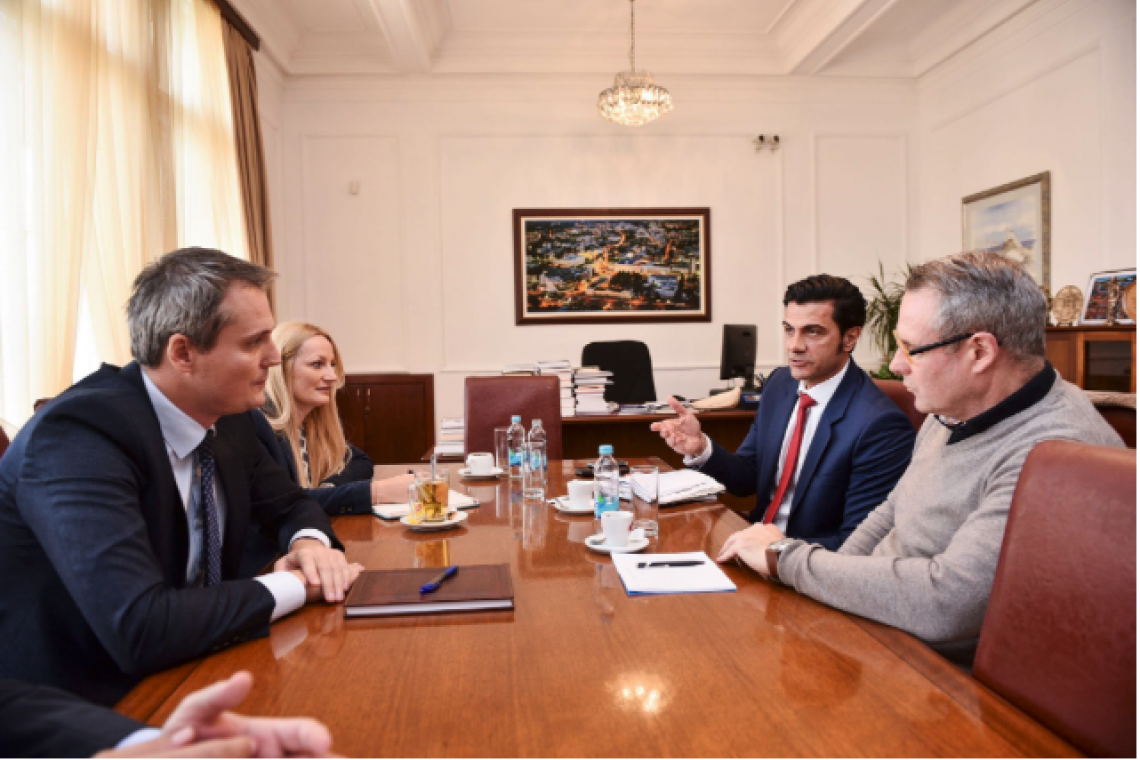- We are an association that enjoys the support of the Swiss Agency for Development and Cooperation. We were founded three years ago and within our programs we have the project called "i-platform", where we offer the possibility for getting better information to all institutions and citizens of Bosnia and Herzegovina, and not only to those ones who have lived in Switzerland", said Edin Dacić on a press conference, as a spokesman for the Association "i-diaspora" from Berne.
As an example of good practice, Dacić said that Association "i-diaspora" helped to bring ten travel agencies from Bosnia and Herzegovina to the Swiss Travel days in Zurich, where Bosnia and Hercegovina was a guest country. For the program that was actual during the visit to Banja Luka, Dacić suggested that it was an attempt to share the "secret" of the Swiss economic, and therefore political and social achievements, which is education.
- In the field of dual education, Switzerland is particularly well known, not only in the context of advising the US, or Serbia. Filip Reber, a specialist in education, especially dual education, in Banja Luka has the task not only to describe the best examples from Switzerland, but to gather all relevant factors here and start a dialogue on the subject. Especially motivated by the fact that the initiative for this came from "bottom up" initiative, from institutions to us, and not the other way around, "from above", here often presented as the only good practice.
In the details of Philip Reber's report, as it is more or less commonly known, it can be discovered that the Republic of Srpska's professional system is unable to provide even the approximate number of necessary and well-educated, qualified workers for the economy. There are also mentors, practical training, and many companies are not ready to invest in the education of their own staff. There has been a standstill for years.
Nevertheless, Reber states, there are signs from different sides that could lead to changes. Potential for this undoubtedly exists, but the question is where to start, where to act?
The suggestion is to start where the lack of skilled workers must and can be solved in the fastest and most efficient way, as well as where well-educated qualified workers can positively impact the quality, productivity, innovation and competitiveness of the company. The initiative for this has to start from the economy, that is, the company, and they must invest in it, because it will make the most of it.
The pilot project would be based not on the institutionalization of a new vocational education system, but on new experiences.
These conclusions were reached at the meeting of Edin Dacic, Philip Reber and the President of the City Assembly of Banja Luka, Zoran Talic, who, during the visit of the Swiss delegation, also spoke with numerous participants in the teaching process, as well as with many young people who wanted to qualify for business, businessmen and representatives of educational institutions.
- It is necessary to do more networking among the employers and the education sector. I believe that investment in dual education is a supply for the future. With the Mayor Igor Radojicic and Edin Dacic, I also discussed planning the necessary training with the aim of improving work performance. We are aware that economy and education are closely linked. - Mr Talic said this on the occasion. - I see the Workers' University as a polygon and a possible high-quality example of introducing a new system of training the labor force needed by the economy. I hope that it could be beneficial to young people, and that many others will find themselves in a dual education system. Economy would thus get workers trained through practical work.
During the meeting in Banja Luka, it was also concluded that dual education is one of the key challenges for the development of the economy. This implies the combining of theoretical knowledge with practice in enterprises, as well as new investments.
The engagement of Philip Reber, Swiss dual education expert, was provided with the donation of the "i-platform", which was supported by the Swiss government.




